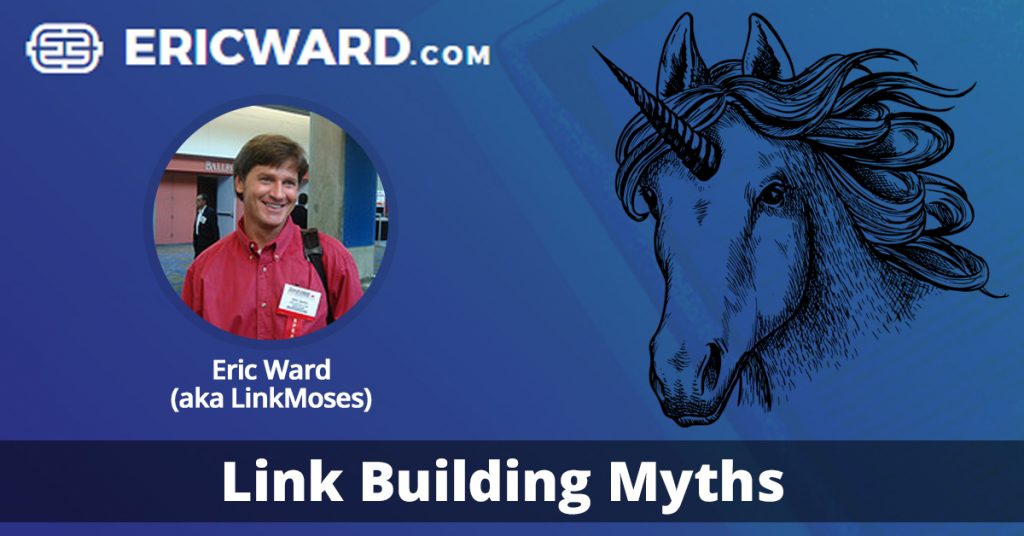(updated May 23, 2017)
One of the never-ending link building myths is the impact that inbound links originating from .edu domains can have on your search rankings. Lost in the discussion is that the quality of IBL’s from within the .edu domain varies significantly.
[Note: If you like this post make sure to also check out three of my more popular posts What Makes a Website Link Worthy?, Link Request Email Tips, Link Building Strategies while you’re here.]
Rather than making this concept more complex than it needs to be, let’s boil it down by example. A link from a student homepage or school paper web site isn’t as valuable as a link from a professor’s page, or better yet, the University library site. Why? because it’s easy to buy links from student newspapers, whereas a librarian isn’t going to be bought. Thus the content EARNED the link, and the source and citation can be trusted…(article continues below)
Use this Category Navigation List to quickly move through my site
Engines know this and will tweak algos until they get it right. Give me 10 library links instead of 100 student page links any day. Likewise with .gov and others. Any TLD has crap, and any TLD has gold.
[Eric’s Note: I continue to update this article as it appears people continue to be as in love with .edu based link targets today as they were years ago. I base this on several inquiries I received, the last one of which I’ve included below]
Dear Mr. Ward,
We are a manufacturer and seller of high end playgound equipment designed for municipalities. Our site is http://xxxxxxxx. We would be very interested in a quote from you for the following…
– obtaining 100 .edu based inbound links
/snipFact or Fiction?
Would it be possible for a manufacturer of playground equipment designed for municipalities to earn .edu inbound links? Maybe. It would take some long term strategic content decisions. Or, some short term scholarships, internships, sponsorships, contests (at schools that offer degrees in planning/recreation) and other clever angles of entry.
The larger question here is would it make sense for them from a business perspective? That’s not as easy to answer. There are no guarantees that .edu links are going to help your rank, and I’ve seen MANY situations where they didn’t. This is not a “links as commodity” scenario. For this to make sense from a business perspective the company would need to develop a deeper relationship with the University, not just view them as a domain to get a link from. Need an example? Here’s one [ http://capla.arizona.edu/planning-program ]. Don’t see an obvious link opportunity? EXACTLY. This is where you start. You build a relationship. You offer internships. You provide faculty with opportunities to talk about urban planning and recreation. You host those interviews on your site. Are you seeing a trend yet? This is business development 101 folks.
In today’s world where the lines between offline and online are more blurred than ever, business development often results in not just business, but links. I’ve said it a million times. The less you worry about the link and the more you focus on creating a relationship, the more likely you are to end up with the exact type of linking footprint that resonates with algorithms.
Geographic Inbound Link Variety
Another linking topic that gets folks excited is geographic IBL variety. This is another way of saying you need links from a bunch of countries. Not true. Links from around the world may not matter one bit for your particular site. Why would a Nebraska hockey store need links from Australia? But I STILL see this type of linking all the time, which means comapnies are still buying linking services from link building firms that are selling complete crap.
More fallacy regarding directory inclusion
Just because I can tell you exactly which links will help you rank higher doesn’t mean you can get those links. You have to earn them via meritorious content.
I can say with complete certainty that the older the site the more useless those directory IBLs are. I rank 1st or 2nd for the exact terms I care about the most, and my site is listed in only two directories. Why do I rank? Simple. Because a). I never went after rank, and B). I stayed true to my content and expertise. That said, since I do rank high I can reverse analyze my links and learn why, but just because I can tell you which links will help you rank high doesn’t mean you can get those links. You have to earn them via meritorious content.
For a newer site, the game changes. A new site’s IBL profile/footprint/transcript/signature needs to slowly percolate towards becoming something that looks natural and trustworthy. I see evidence every day that the links that help me rank 1st will not help every site site rank 1st.
So what works for one site WILL NOT work for every site, which is why it’s such a challenge to create software/tools that can analyze links with any degree of confidence. In the end, a human still has to make some very tricky decisions about whether or not ANY link is worth pursuing. The answer will be different for every site, and your motivation for pursuing any link target needs change. It’s not about links s a commodity anymoe, even tighter focused commodities as opposed to rampant spam. Today it about Bizdev, publicity, goodwill, giving not taking, participating, engaging, and creating.
Which is what the web was supposed to be in the first place.

